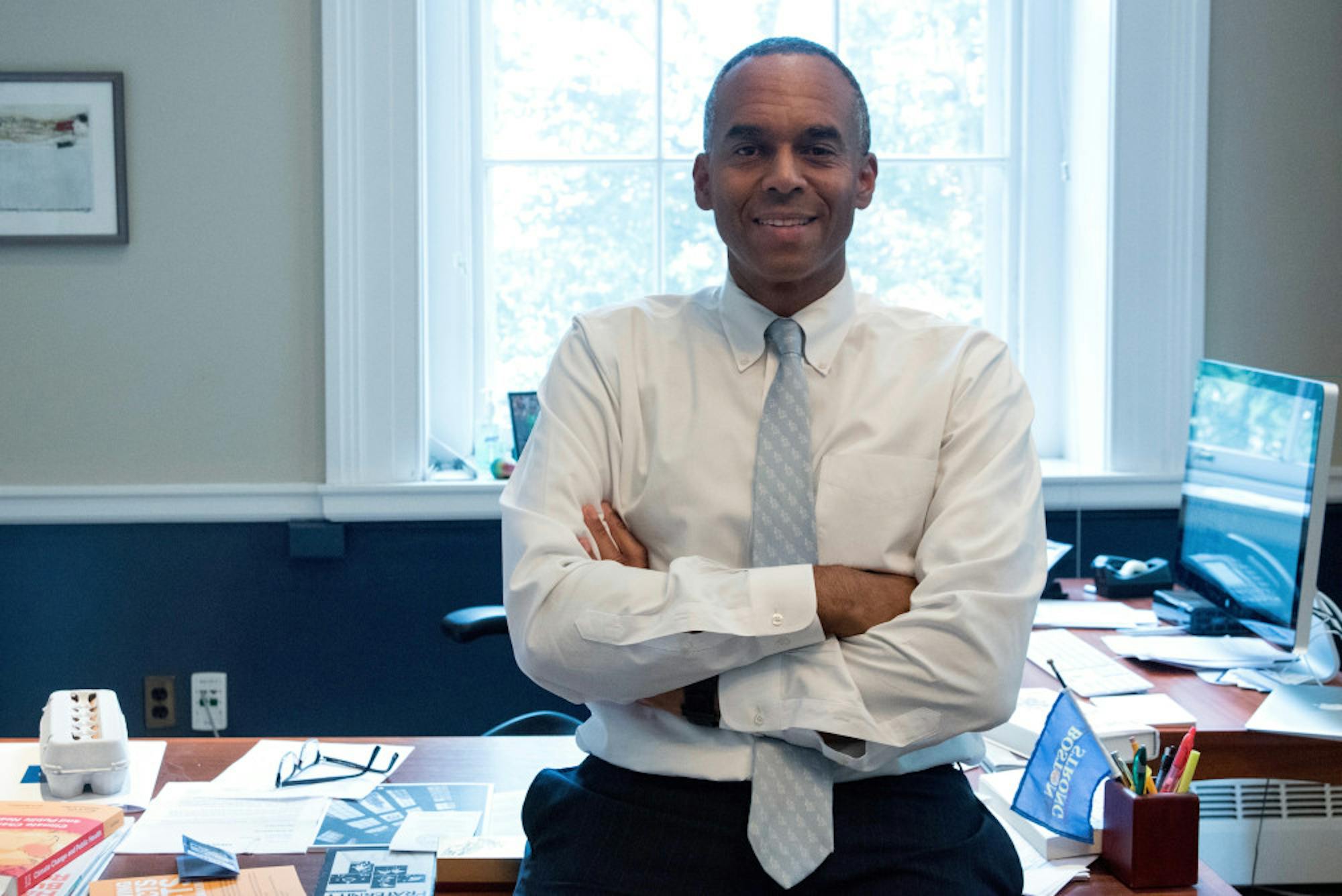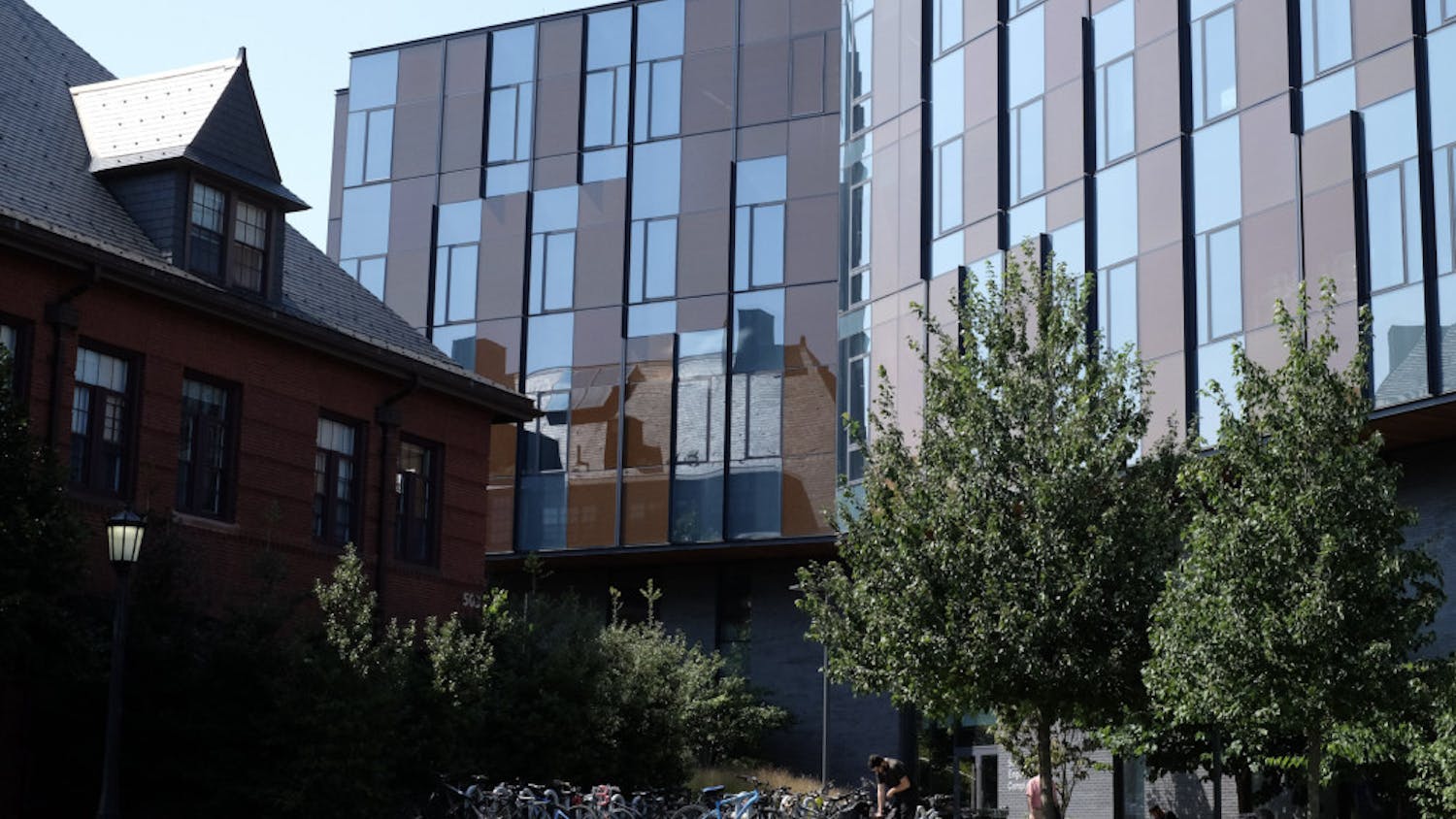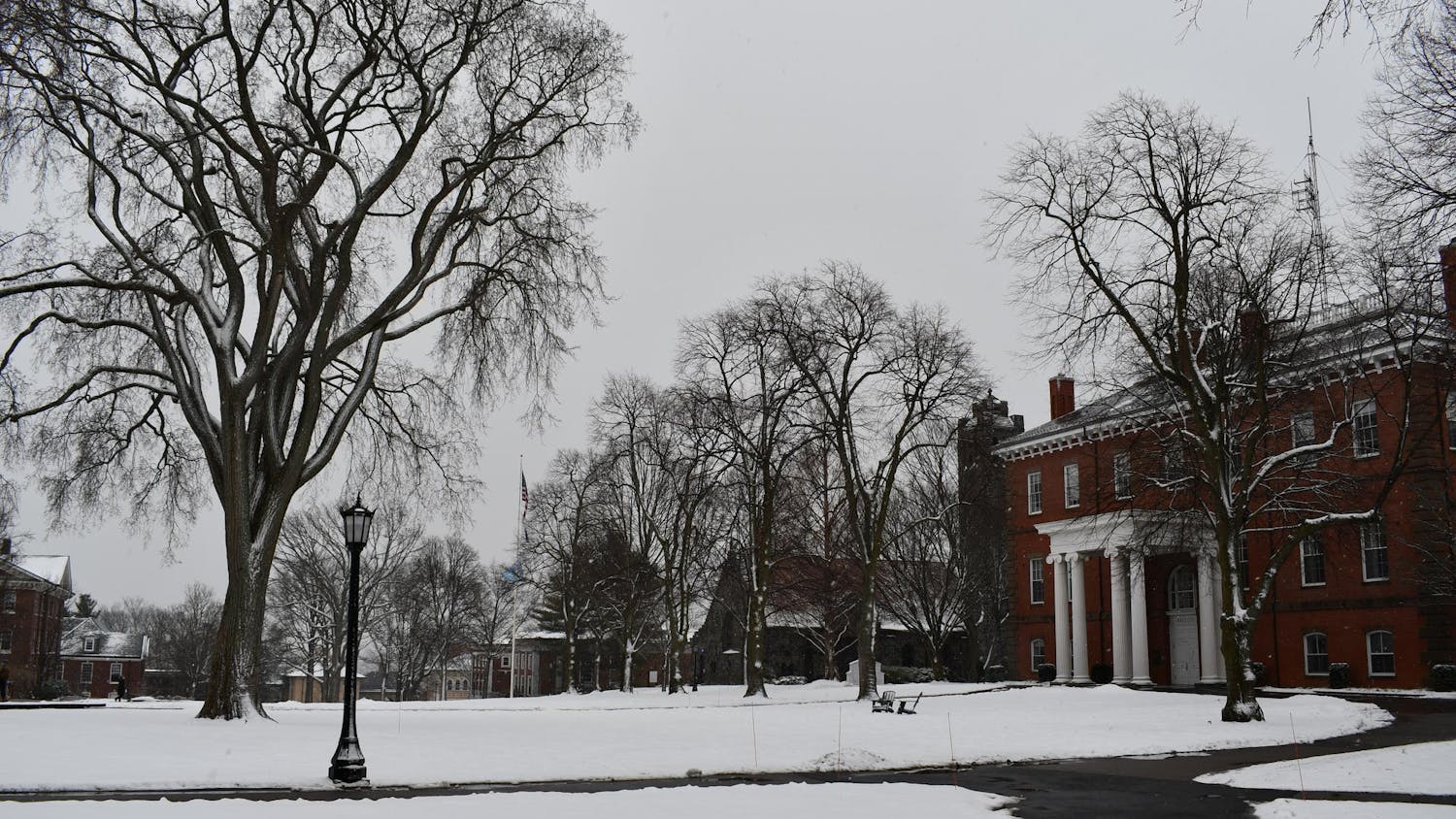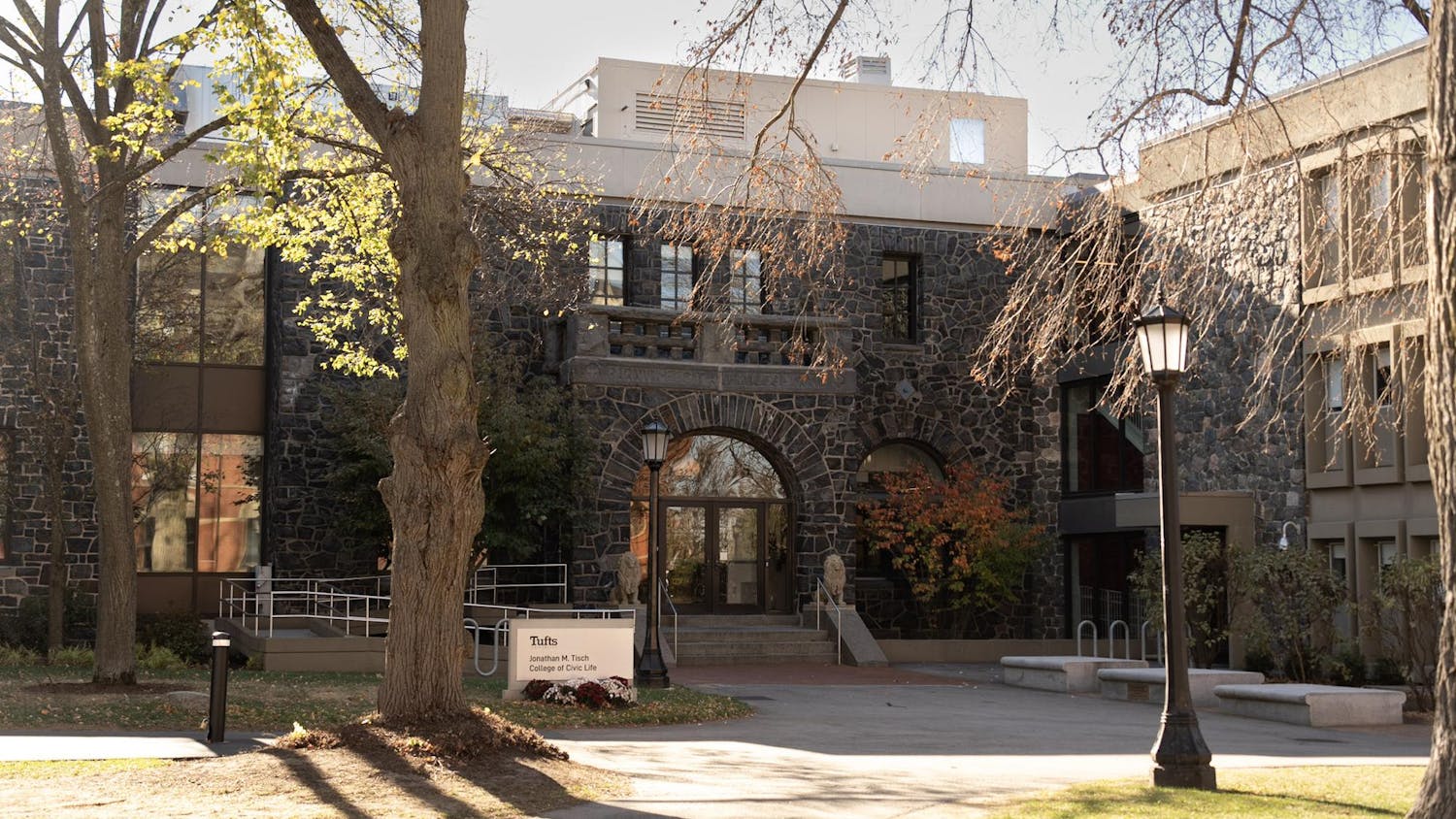Three Tufts administrators held a discussion with students of The Fletcher School of Law and Diplomacy about the school's Board of Advisors on Nov. 16, in light of a petition to remove Anthony Scaramucci (LA '86) from the board. The talk was led by Fletcher School Dean James Stavridis, Provost David Harris and Board of Advisors Program Director Jonathan Kaplan.
Harris opened the discussion by saying that when he first heard about the petition to remove Scaramucci about a month ago, he turned to Kaplan to find out what the process or precedent was for dealing with such a petition.
“We have never removed anyone from a Board of Advisors at Tufts,” Harris said he learned from his conversation with Kaplan.
Because this issue has never arisen, Harris said it had never occurred to anybody to create a process. Accordingly, a draft of this process will be proposed to the Board of Trustees which they will discuss and decide on when they meet this January.
Following the publication of an op-ed and a news article in the Daily on Nov. 6 and Nov. 7, respectively, Harris said they decided to hold two events: this one in which they could share information about the Board of Advisors and a public event in which Scaramucci will come speak with the community.
"We’re a constructive engagement university," Harris said. "We want people to come voice their perspectives, but part of the deal is, they’ve got to be able to engage with other people who may disagree.”
Harris said Scaramucci will have an opportunity to speak about his experiences and what he has learned from them. Harris said he agreed with the Daily op-ed in that Scaramucci should not be defending his position on the board, as that is not his call to make.
“I cannot comment at this point — nor can Jim [Stavridis] or Jonathan [Kaplan] — about what the implications of this process will be for Anthony Scaramucci because there is no process for me to rely on,” he said.
Kaplan then went on to explain the purpose of a Board of Advisors, the process of appointing members and the expectations the university has of them.
He said there are a total of 10 boards between the various schools at the university. The roles of advisors are to provide advice to the deans, philanthropically support the university and serve as ambassadors of the university.
“Unlike the Board of Trustees, advisors do not have decision-making authority for the university,” Kaplan said. “They do not have fiduciary responsibility. They’re really advisors and friends of the university.”
Kaplan explained that advisors are appointed for five-year terms which are renewable with the approval of the dean. New advisors are made aware of the guidelines and sign a conflict of interest statement accordingly. The Fletcher board typically meets twice a year, once on the Fletcher campus and once in Washington, D.C.
“The formal nomination process is done with a combination of the chair on that board and the dean making a recommendation to the provost and our senior vice president for university advancement,” Kaplan said. “Once everyone is in agreement that this is someone we’d like to consider to have on our board, it is then taken to the Executive Committee on the Board of Trustees and they are the ones who make the decision.”
Kaplan said the advisors discuss topics such as admissions, fundraising, curricula, student life and marketing. Advisors are further given the option of serving on subcommittees dedicated to tackling specific topics.
Stavridis followed with a discussion of why the Board of Advisors is important to Fletcher. He emphasized the fact that the members work all across the globe and bring their own international expertise to the table.
“We turn to the board to get a set of mature, outside eyes looking at things that we’re doing around the school,” he said.
On top of providing expertise and advice, Stavridis said the board also serves as a robust network to help find and create job opportunities for Fletcher students. Advisors further help the school by aiding its fundraising efforts.
“Our fundraising goal at The Fletcher School two years ago was $7 million,” Stavridis said. “We raised $18 million. About half of that derived from contacts provided by board members.”
The second half of the event consisted of a question-and-answer session with attendees, most of whom were current students and faculty. Harris fielded most of the questions and generally avoided answering direct questions about Scaramucci, instead commenting on the Board of Advisors as a whole.
In response to a question about conflicts of interest, Harris gave an example of a board member joining President Barack Obama's administration and subsequently stepping down from the advisor position.
Carter Banker, a second-year master of arts in law and diplomacy candidate who started the petition to remove Scaramucci, then brought up the fact that Scaramucci was also briefly in the government, as President Donald Trump's White House communications director.
Stavridis said that the policy had, in fact, been invoked, but the conflict of interest was mitigated because Scaramucci served in the Trump administration for fewer than two weeks.
Banker asked for an explanation of what the timeline of creating and executing the process will look like. Harris said a policy recommendation will be sent to the Board of Trustees before it meets in January. They will likely finalize a policy at that meeting which can then actually be applied.
In a statement Banker made to the Fletcher student body regarding her thoughts on Thursday's meeting, she called it a "net positive," as the administration will be creating a procedure for removing a member of the Board of Advisors. However, she said she wished there was more definitive evidence that Scaramucci could be subjected to this new process, if it were to go into effect.
"The disappointing aspect of the meeting was that from here it all becomes a bit of a black hole," she wrote in an abridged version of the statement sent to the Daily. "We were not able to get a definitive statement that once the procedure is in place that Scaramucci would be subjected to it. "
Banker said there will have to be a discussion as to the correct response to Scaramucci's actions.
"Is Scaramucci's behavior bad enough to warrant removal, or simply the non-renewal of his position on the Board when his term ends in three years?" she said.
Banker said if the removal process involves a vote of the Board of Trustees, she would try to gather statements from Fletcher students, alumni, faculty and staff "in an attempt to give us some access to the process."
Scaramucci’s conversation with the community later this month will be closed to press.






